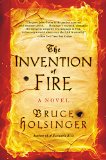Summary | Excerpt | Reviews | Beyond the Book | Readalikes | Genres & Themes | Author Bio

On that windy day following the examination in the St. Bart's churchyard I had determined to visit every gate in turn, worming beaks with coins as I went. If sixteen men could die in London, and not one of them be known to Ralph Strode, to the mayor and his men, to the king's coroner and his, nor even to one of the dozen freemen of the city gathered for the inquest, they must have come from outside the walls. London is a large place, though not exceedingly large, and to conceive of so many Londoners unrecognized and unsought by loved ones seemed an impossibility. Somewhere along the walls was a guard or a warden who had seen something, or knew someone who had.
My day would begin at Aldgate, where the walls separated the parish of St. Katharine Cree from St. Botolph-without, and end at Ludgate, where Peter Norris slumped in the pillory, claiming knowledge of a witness. I left Southwark early in the day to cross the bridge, angling from the bankside up to Aldgate Street, which I took to the edge of town. A stiff September wind burned at my eyes, creating especially fierce gusts along the broadening way before the gate, where thousands of colorful shapes whorled in a circling gale. A dozen children jumped about beneath them. The dancing shapes were cloth, I realized as I reached out to pluck one from the air. A sack of fabric scraps, spilled before some tailor's shop and now dancing with the winds. Then a stiffer gust, and the spiral of color was gone as quickly as it had arisen, the children chasing the shapes away to the west. Another beautiful, meaningless thing I would never see again.
Unlike the high and ugly bulk of Aldgate, which loomed above me now, a begrimed surface of stone and stupidity that seemed to attract more featherbrained schemes for enlargement and improvement than its brothers. As a result Aldgate had suffered its share of minor collapses over the years, as the collective folly of builders and masons led to ever more perilous attempts to reshape the fabric. A broad length of sailcloth hung down to cover a pitted scar in the stonework on the north tower, while above, a crane arm jutted awkwardly from a high opening, its intent to pulley stones to the upper reaches, though it looked to have gone unused for months.
Halfway up, where one set of stairs forked to the gate's north tower, the other to a set of apartments in the south, I had to pause, scarcely believing my ears.
"Sell this one—no, this one, and leave the others for Philippa to barter away. She's hardly in a position to object. Perhaps her slutting sister can help her."
A familiar voice, though tightened with uncommon anger. Revers- ing direction, I climbed up the right stair and made my way along the groaning walkway to an unassuming door, the main entrance to the series of rooms making up the small apartment atop the gate. For twelve years the house in the south tower had been the home of Geoffrey Chaucer, my oldest friend, though I thought he had left London some weeks before.
The door stood open, wedged with a chipped brick, and in the front chamber Chaucer was stooped over, tussling with an array of silver trinkets and goblets spilling out of a wood box. Crates, a stack of trunks, rolls of twine: the modest house was in a tremendous disarray, made all the more dire by the continual gusts blowing in from the door and scattering dust and invading leaves about the rooms. Despite the piles of belongings the place felt empty and bare, the only light coming from narrow slits low along the walls.
I stepped inside, further darkening the place. Chaucer turned. His scowl softened at the sight of me. A sad smile, and he tilted his head. "Mon ami," he said, coming to his full height. We embraced in the middle of the low space, surrounded by the detritus of his Aldgate life. Two servants brought in pieces of furniture from the back room, set them on the floor, returned for a next load.
Excerpted from The Invention of Fire by Bruce Holsinger. Copyright © 2015 by Bruce Holsinger. Excerpted by permission of William Morrow. All rights reserved. No part of this excerpt may be reproduced or reprinted without permission in writing from the publisher.




Beware the man of one book
Click Here to find out who said this, as well as discovering other famous literary quotes!
Your guide toexceptional books
BookBrowse seeks out and recommends the best in contemporary fiction and nonfiction—books that not only engage and entertain but also deepen our understanding of ourselves and the world around us.